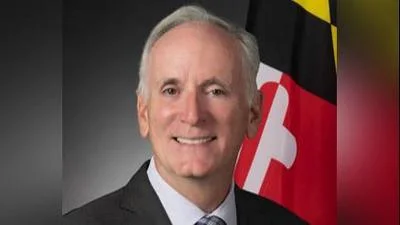Maryland Chamber of Commerce issued the following announcement on Oct. 16.
The decisions that shape the future are being made now. In Suite 100 of 60 West Street, business leaders from across the state came together to bring the issues that effect those decisions to the table.
Stakeholders in the telecommunications sector gathered to discuss public policy concerns and address them as a unit instead of individual interests through the Maryland Chamber Foundation’s Telecommunications Advisory Group.
In the 2018 Legislative Session, the Maryland Chamber lobbied on five bills (including cross-files) relating to telecommunications that could have major implications on the State of Maryland. The Telecommunications Advisory Group comes together quarterly to address the legislation the Maryland Chamber has worked on to see how we will support it in the future. With the 2019 Legislative Session approaching, the Maryland Chamber will support bills that will positively enhance telecommunications in the state. Rising issues include:
5G/Small Cell Deployment
The Montgomery County Council recently passed a commercial small cell bill to make it easier for wireless internet companies to enhance the reliability of 5G broadband coverage. There are still limits in place for installing new cell structures in residential zones.
Net Neutrality
The Maryland Chamber opposed a bill on net neutrality during the 2018 Legislative Session because of concerns that attempts to regulate the internet on a state-by-state basis would create a patchwork of laws and regulations that would harm businesses’ ability to effectively operate across state lines.
Net neutrality has failed to pass in the past two legislative sessions, but it will be back in the 2019 Legislative Session.
Data Privacy
There are challenges from merchant and consumer perspectives on dealing with different regulations in different jurisdictions. Personally identifiable information has varying definitions across states and there are 50 different state laws regarding data privacy. States want more federal uniformity on data privacy laws to address challenges. The combination of comprehensive data privacy and net neutrality laws would be preferred.
Next Generation 911 System
The goal of the next generation 911 system, or E911, will allow emergency responders to use their cellphones to send and receive help via text. This will be beneficial for those with hearing or speech disabilities, or for anyone who needs to ask for help silently, such as a domestic abuse victim. This new system will have live video capability and the ability to link with a smart watch for medical information that can be vital for emergency responders to know before they arrive on the scene. The E911 system will be expensive and finding a funding mechanism within the state may prove challenging.
State Online Political Advertising Law (HB981/SB 875 of 2018)
This law was passed during the 2018 Legislative Session to help prevent election hacking. It will regulate electronic communication and require additional disclosure and transparency in regards to advertising on online platforms.
Rural internet, broadband, wireless and cellular services access
Maryland has taken a measured approach compared to other states. Cecil County is the first to take on expanding reach to more remote areas, with a 25 home pilot starting soon, bringing connectivity to unserved areas.
Original source can be found here.

Source: Maryland Chamber of Commerce






 Alerts Sign-up
Alerts Sign-up